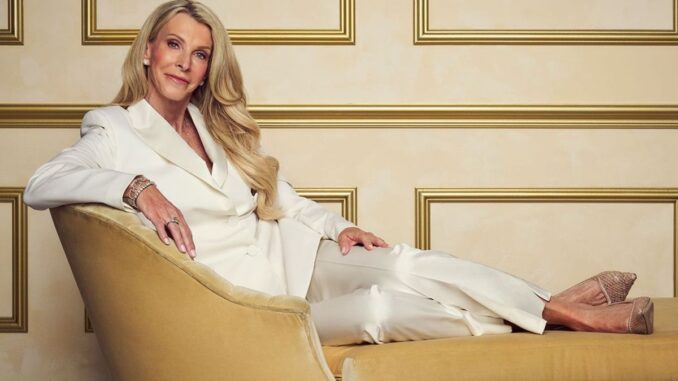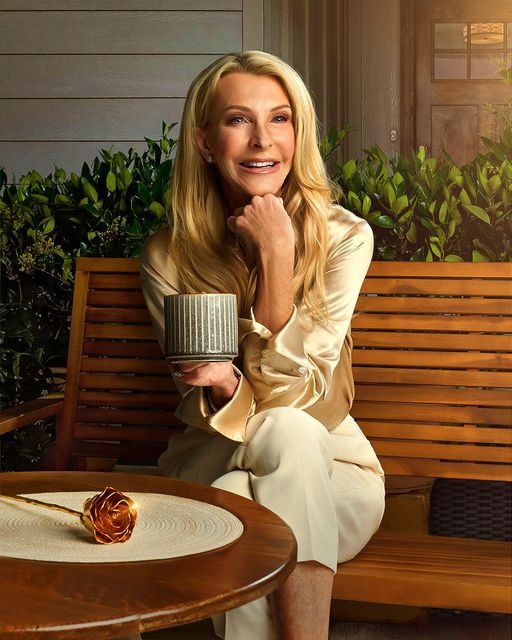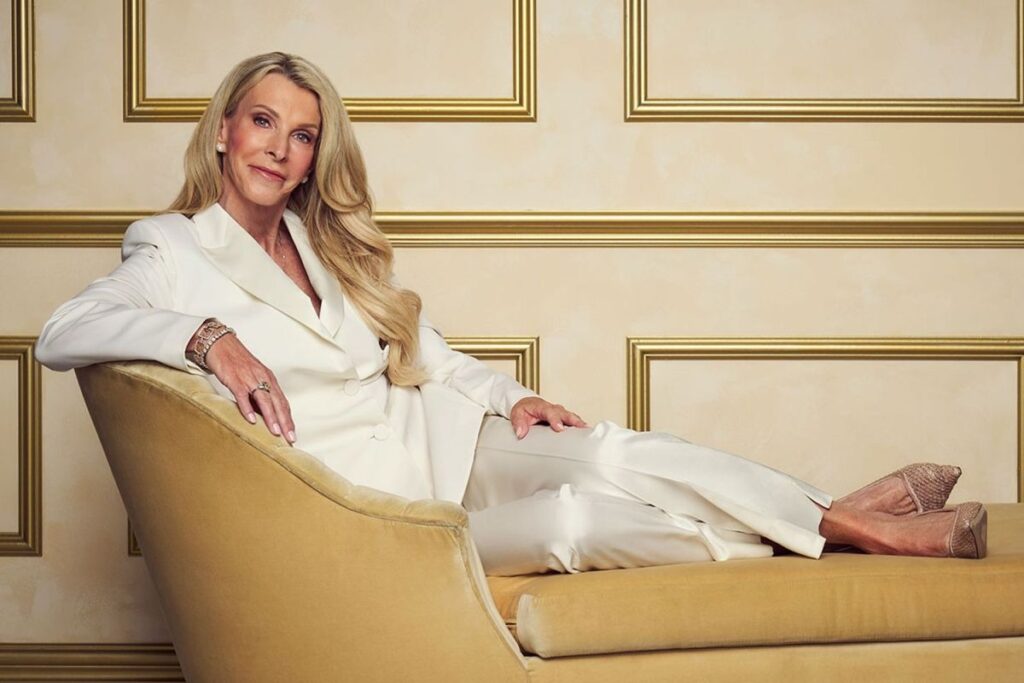
The series premiere of The Golden Bachelorette – the spin-off of The Golden Bachelor – is just one day away, and fans are eagerly waiting to see Joan Vassos get her second chance at love.
In 2023, Joan appeared on season one of The Golden Bachelor starring Gerry Turner, who got engaged to his now former wife, Theresa Nist. Joan’s time on the show was cut short after she returned home to support her daughter, who was struggling with severe postpartum depression. Still, the reality star made a strong impression with Bachelor Nation, who was thrilled to learn in May that she’d be the first-ever leading lady of The Golden Bachelorette.
Joan’s journey to find the one comes after her first husband, John Vassos, died in 2021 at age 59 from pancreatic cancer. According to Joan, she felt ready to reenter the dating world two years after John had passed, which led her to be cast on The Golden Bachelor. “I did not want to spend my life alone, so I knew that I had to take action, but my heart wasn’t there at all,” she told CNN in May. “I was saying to my friend, ‘How in the world do you date now? Look around this restaurant. Everybody here is a couple. Everybody my age is married. All my friends are married.’”
Now, she’ll be dating 24 men in their sixties and seventies, with the hopes of getting engaged by the end of the season. However, Joan couldn’t have done this without the support of her late partner. In a June interview with Entertainment Tonight, she revealed how it felt like John had “gotten her” to the reality show, since they previously talked about her dating again one day. “He told me right before he passed away, ‘You need to go out and find somebody else. You were the best wife in the world and I want you to be happy,’” she explained. “He gave me this wonderful gift before he died, and he said go and do something.”
Speaking to The Independent, Jaime Bronstein – a licensed relationship therapist and author of MAN*ifesting: A Step-By-Step Guide to Attracting the Love That’s Meant for You – acknowledged that Joan ultimately got John’s permission to remarry again, even though she didn’t necessarily need it. Bronstein urged Joan to give herself some grace on this adventure, as she navigates what dating looks like after losing a spouse.

“Their conversation gave her a sense of freedom, but not the freedom of, ‘Oh, well, he’s gone,’’ Bronstein said. “It’s this freedom from herself. Freedom from any judgment or guilt that she might put upon herself. I feel like it can help bring her more peace about the whole dating journey, knowing that John has given her his blessing.”
For Joan, dating more than two dozen men on The Golden Bachelorette forced her to face her grief head-on. “I was feeling really guilty, honestly, about having feelings for somebody else. I almost felt like I was cheating on John, which is crazy because he’s passed away,” she said in an interview with People published on September 17.
Leading up to the season premiere of The Golden Bachelorette, Joan has made it clear to her family – including her four adult children – that she’ll always keep John close to her heart. “Thank you so much for all your support,” she said at her family dinner table in a video for ABC. “I’m not here to replace Dad. I just want our family to be whole again.”
According to Brianna Paruolo, a licensed clinical mental health counselor and owner of On Par Therapy in New York City, having an honest and open dialogue is the best way to talk to your family about a new relationship – even though a new partner could never erase our love for those who have passed. Of course, it can be challenging for us to see our family members move on, and although we may have initial feelings of anger or confusion, this can later result in moments of understanding and reflection.
“While you examine what feelings are coming up for you at the moment, you also have to think realistically about how you can support that person in a new relationship,” Paruolo added. “Because grief is unique to all of us, we have to be open to everyone’s grieving process and journey while creating certain boundaries for ourselves.”
While new relationships should occur at our own pace, a 2004 study from Rutgers University found there are gender differences in widowed persons who are interested in dating. Researchers discovered that six months after their respective spouses died, 30 percent of male participants and 16 percent of female participants said they were likely to remarry. Eighteen months after their spouses died, 37 percent of men expressed that they had an interest in dating again, while only 15 percent of women said the same.
When you do find someone you want to be with long-term after losing a spouse, it’s important to introduce them to your family on your own timeline. However, this won’t be the case for Joan. As fans of The Golden Bachelor and the entire Bachelor franchise are aware, she’s expected to meet the final three contestants’ families all at once. The last two contestants will then meet Joan’s family, before she decides who to get engaged to in the season finale.

Still, Bronstein urges her clients to wait until they’re at least one year into a committed relationship before making the introduction. Much like Joan’s case, there are instances when “meeting the family” occurs much sooner, such as an early engagement or dating without any labels. Regardless, it’s necessary to communicate with your family about the undefined romance, which could start by simply asking how they feel about this new journey.
“You’re not giving them permission to say, ‘I don’t like this so you shouldn’t do it,’” Paruolo said. “You have to be as clear and age-appropriate as possible when giving children the full story. Like mom, dad, or whoever can say, ‘We’re exploring, and this may look this way or things might change.’ That’s kind of giving the platform of this person might be in your life for a long time.”
On The Golden Bachelorette, Joan’s plans are clear: she wants to find a second husband. It’s important to be as transparent about your intentions with both your love interest and your family, who may still be struggling with feelings of grief. Without sharing too many details, adults should tell their children what they hope will ultimately come from dating someone new.
“Are they looking for companionship? Are they looking just to explore other kinds of feelings?” Paruolo said. “Before communicating with children – whether they’re grown or not – make sure you’re clear of what your reason is for dating, while remembering you have nothing to prove. Things get clearer by having an honest conversation and being open to feedback.”
What’s more, Joan’s experience will offer a three-dimensional representation of grief on our TV screens, bringing awareness to the highs and lows of finding love after losing a spouse. Despite her feelings of guilt, Bronstein emphasized that Joan should feel proud of the journey she’s embarking on.
“When anybody has negative self-talk, it’s only them feeling that. Everyone deserves love and so does this person who has lost somebody,” she said. “I believe that our hearts are big enough to have more than one great love in our life. There’s enough room for John and the new man.”